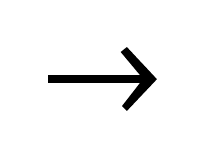VOCABULARY CHOICE: Verbs
VOCABULARY SHIFT
Many of the most common English verbs also tend to be replaced by Latinate verbs having a more precise meaning. As can be seen from the list below, these common Anglo-Saxon verbs can have many meanings.
Informal

|
|
Formal (written)

|
|
be
|
 |
be situated, be located, be placed, be positioned; be outlined, be listed, be described; serve as
|
|
do
|
 |
perform, implement, execute, complete, conduct, function, operate
|
|
get
|
 |
become, acquire, procure, receive, gain, obtain, achieve, attain
|
|
give
|
 |
provide, offer, supply, transfer, yield; allow, permit, enable; contribute
|
|
go
|
 |
proceed, pass, process, transfer, transmit
|
|
be going to
|
 |
will
|
|
happen
|
 |
occur
|
|
have
|
 |
possess, include, incorporate, contain, involve, consist of, be composed of, comprise
|
have to
have got to
|
 |
should, must, need to
|
|
make
|
 |
produce, generate, create, assemble, build, construct, erect, fabricate, fashion, forge, form, frame, manufacture, mold
|
|
mean
|
 |
denote, indicate, imply, suggest, signify
|
|
put
|
 |
place, attach, insert, apply, connect, join, link, unite; adhere, anchor, secure, implant, imbed
|
AVOID PHRASAL VERBS
Most phrasal verbs are formed from a small number of common verbs (such as get, go, come, put, do,
take, make, and set) and a small number of adverbs and prepositions (such as away, out, off, up and
in). However, for written academic style, a single-word Latinate verb is preferred whenever possible. This is one of the most dramatic shifts from informal
to formal style.
| Phrasal verb: |
 |
The aim of this study is to look at the growth dynamics and to find out the microbial populations living in the C140 prototype hydraulic system.
|
| Latinate: |
 |
The aim of this study is to examine the growth dynamics and to determine the microbial populations living in the C140 prototype hydraulic system.
|
|
Most phrasal verbs are formed from a small number of common verbs (such as get, go, come, put, do,
take, make, and set) and a small number of adverbs and prepositions (such as away, out, off, up and
in). However, for written academic style, a single-word Latinate verb is preferred whenever possible. This is one of the most dramatic shifts from informal
to formal style.
Informal

|
|
Formal (written)

|
|
bring up
|
 |
raise, present
|
|
build up
|
 |
accumulate
|
|
come up with
|
 |
devise, invent, develop; produce, supply
|
|
do away with
|
 |
eliminate, obviate
|
|
find out
|
 |
determine, develop; detect, observe;
|
|
get rid of
|
 |
eliminate
|
|
go down/up
|
 |
decrease, decline, diminish / increase, rise, augment
|
|
take care of
|
 |
manage, operate
|
|

